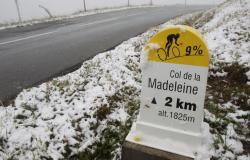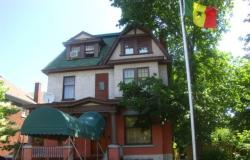Using the most recent data from the Financial Security Survey (ESF) published by Statistics Canada, economist Geoffroy Boucher notes that family assets, i.e. the wealth accumulated over a lifetime, have evolved very unevenly since 2019.
Between 2019 and 2023, the value of wealth held by Quebec families increased from $2,417 billion to $3,008 billion.
However, families in the richest 10% alone captured 32.3% of this increase.
As for families in the poorest 40%, they only captured 11.2% of the growth in wealth.
Real estate as a source of enrichment
According to the economist, the increase in family wealth since the pandemic is largely explained by the marked increase in the value of real estate assets.
In Quebec, real estate is responsible for 59% of the increase in total family assets. The total value of real estate assets increased from $980 billion in 2019 to $1,352 billion in 2023 (in constant dollars).
In comparison, RRSPs (16%) and vehicles and other non-financial assets (14%), respectively in second and third place, follow far behind.
For Geoffroy Boucher, the significant growth in real estate risks widening inequalities between owners and tenants.
The weight of mortgage debt
If the value of assets held by families in Quebec increased by 23% between 2019 and 2023, that of debts – which constitute the second dimension of wealth – increased by 10%, observes the economist.
According to him, the increase in families' financial obligations is attributable to the increase in mortgage debt, the total value of which increased from $288 billion in 2019 to $324 billion in 2023 (in constant dollars).
Quebec fares less well
In 2023, recalls the economist, the Observatory published a first portrait of wealth inequalities in Quebec, which demonstrated in particular that wealth inequalities were much more pronounced than income inequalities.
In addition, this portrait also highlighted the fact that while Quebec positions itself as the least unequal province in terms of income, the province does less well in terms of heritage, ranking behind Ontario, British Columbia and the Atlantic provinces.
Underestimated inequalities
For Geoffroy Boucher, it appears that these inequalities are also underestimated, with the ESF data underestimating the importance of wealth held at the top of the distribution.
In fact, he indicates, the Parliamentary Budget Officer has noted problems of under-declaration or absence of data among families with very high assets within the ESF.
“Better quality data would shed fairer light on the distribution of wealth in Canada. Asset inequalities constitute an essential indicator of the socioeconomic situation of families in Quebec and Canada. They also play a vital role in the reproduction of social position from one generation to the next,” concludes the economist.






